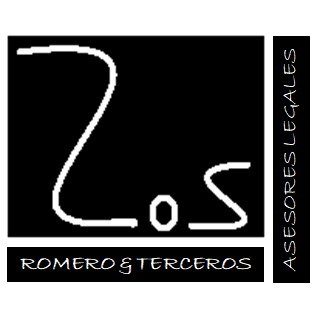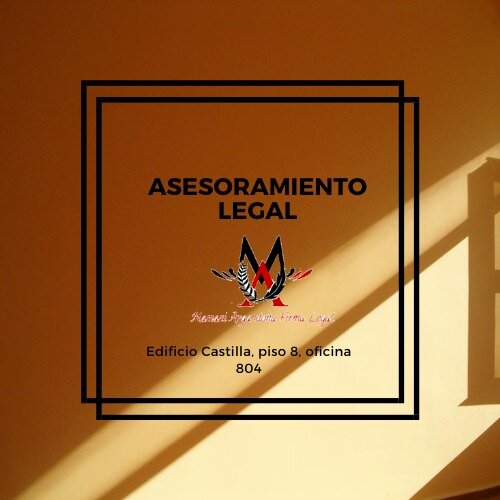Best Mining Law Lawyers in La Paz
Share your needs with us, get contacted by law firms.
Free. Takes 2 min.
List of the best lawyers in La Paz, Bolivia
About Mining Law in La Paz, Bolivia
Mining Law in La Paz, Bolivia governs the exploration, extraction, processing, and commercialization of mineral resources found within Bolivian territory. Bolivia is known for its rich deposits of minerals such as tin, silver, lithium, and zinc, making mining a significant contributor to the country's economy. The legal framework is primarily determined by national legislation, including the Mining Law (Ley de Minería y Metalurgia), and is implemented through government agencies at the national and departmental levels, like in La Paz. Mining Law encompasses regulations regarding mining concessions, environmental protections, community involvement, royalties, labor rights, and the transfer or inheritance of mining rights.
Why You May Need a Lawyer
Navigating Mining Law in La Paz can be complex due to the intricate legal requirements and the involvement of various governmental bodies. Common situations where individuals or companies might require legal help include:
- Applying for or transferring mining concessions
- Negotiating joint ventures or contracts with local communities or international partners
- Ensuring compliance with environmental, labor, and safety regulations
- Resolving disputes over land use, concessions, or royalties
- Addressing allegations of illegal mining activities
- Obtaining permits and authorizations from various authorities
- Protecting investment in cases of expropriation or administrative sanctions
- Participating in government tenders for new mining areas
A lawyer with experience in Mining Law can provide crucial guidance, ensure compliance with evolving laws, and safeguard your interests at every stage of a mining operation or transaction.
Local Laws Overview
Mining activities in La Paz, Bolivia are regulated by the Mining Law No. 535, enacted in 2014. Key local aspects include:
- Ownership of Minerals: All mineral resources are the exclusive property of the Bolivian state. Individuals or companies may only exploit minerals through state-granted concessions or contracts.
- Concessions: Mining rights are granted via licenses or administrative contracts following an application process with the Autoridad Jurisdiccional Administrativa Minera (AJAM).
- Environmental Regulation: All mining projects must obtain environmental licenses and carry out environmental impact studies. Compliance is monitored closely.
- Community Rights: Mining activities must consider and consult local and indigenous communities, especially if activities affect their lands or resources.
- Taxes and Royalties: Mining entities must pay royalties and comply with tax obligations set by the national and departmental governments.
- Foreign Investment: Foreign individuals and companies may participate in mining under the same legal provisions as nationals, with some restrictions based on strategic sectors and border areas.
- Small-scale and Cooperative Mining: Special provisions exist for small miners and cooperatives, which have a significant presence in the La Paz region.
Frequently Asked Questions
What is required to obtain a mining concession in La Paz?
You must file an application with the Autoridad Jurisdiccional Administrativa Minera (AJAM), including technical, legal, and financial documentation. Environmental licensing and stakeholder consultations may also be necessary.
Can foreigners own mining rights in Bolivia?
Foreigners may hold mining rights under the same conditions as Bolivians, except in certain areas like border zones and strategic industries, where additional restrictions might apply.
How are indigenous communities involved in mining projects?
Consultation with indigenous communities is mandatory if mining activities impact their territories or rights. Agreements or compensation may be required before project approval.
What types of permits are needed for a mining operation?
Besides a concession, environmental licenses, water usage permits, labor registrations, and municipal authorizations may be required, depending on the scope of operations.
How are environmental concerns addressed in mining?
The law requires environmental impact assessments before commencing activities and mandates regular monitoring and reporting. Non-compliance can lead to fines, suspension, or revocation of permits.
What are mining royalties and how are they paid?
Royalties are payments made to the state based on the value and quantity of extracted minerals. Rates vary by mineral type and production volume, and are paid to both national and departmental governments.
What legal recourse exists for disputes or illegal mining?
Disputes can be resolved administratively through AJAM or judicially in Bolivian courts. Illegal mining can be prosecuted as a criminal offense, with sanctions including fines and confiscation of materials.
Are there special regulations for small-scale miners and cooperatives?
Yes, the law recognizes and regulates mining cooperatives, often with simpler procedures and lower fees. However, they must still comply with environmental and labor laws.
How long do mining rights last?
Mining concessions are generally valid for up to 30 years and can be renewed if all legal requirements continue to be met.
What happens if I want to sell or transfer my mining concession?
Transfers are possible but must be approved by the relevant authorities and meet all legal and contractual requirements. Both parties must notify AJAM and follow the prescribed process.
Additional Resources
If you are seeking more information or assistance concerning Mining Law in La Paz, these resources may be useful:
- Autoridad Jurisdiccional Administrativa Minera (AJAM): The main regulatory body for mining concessions and permits.
- Ministerio de Minería y Metalurgia: The Ministry overseeing policy, regulation, and sector development.
- Defensoría del Pueblo: Provides support in cases related to community and indigenous rights.
- Environmental NGOs and technical consultants: Assist with compliance regarding environmental evaluations and impact studies.
- Professional legal associations in La Paz: For referrals to qualified Mining Law attorneys.
Next Steps
If you believe you need legal assistance related to Mining Law in La Paz, Bolivia, consider taking the following steps:
- Gather all documents and information related to your mining operation, rights, or dispute.
- Identify your specific legal needs (for example, obtaining or transferring a concession, compliance, dispute resolution, etc.).
- Contact a lawyer or law firm specializing in Mining Law in Bolivia, preferably with experience in the La Paz region.
- Consult with relevant government agencies (such as AJAM or the Ministry of Mining and Metallurgy) for procedural guidance.
- If community or environmental issues are involved, consider consulting with experts in those fields to ensure proper compliance.
Consulting with a qualified legal professional will help you understand your obligations, protect your interests, and ensure compliance with Bolivian Mining Law.
Lawzana helps you find the best lawyers and law firms in La Paz through a curated and pre-screened list of qualified legal professionals. Our platform offers rankings and detailed profiles of attorneys and law firms, allowing you to compare based on practice areas, including Mining Law, experience, and client feedback.
Each profile includes a description of the firm's areas of practice, client reviews, team members and partners, year of establishment, spoken languages, office locations, contact information, social media presence, and any published articles or resources. Most firms on our platform speak English and are experienced in both local and international legal matters.
Get a quote from top-rated law firms in La Paz, Bolivia — quickly, securely, and without unnecessary hassle.
Disclaimer:
The information provided on this page is for general informational purposes only and does not constitute legal advice. While we strive to ensure the accuracy and relevance of the content, legal information may change over time, and interpretations of the law can vary. You should always consult with a qualified legal professional for advice specific to your situation.
We disclaim all liability for actions taken or not taken based on the content of this page. If you believe any information is incorrect or outdated, please contact us, and we will review and update it where appropriate.









